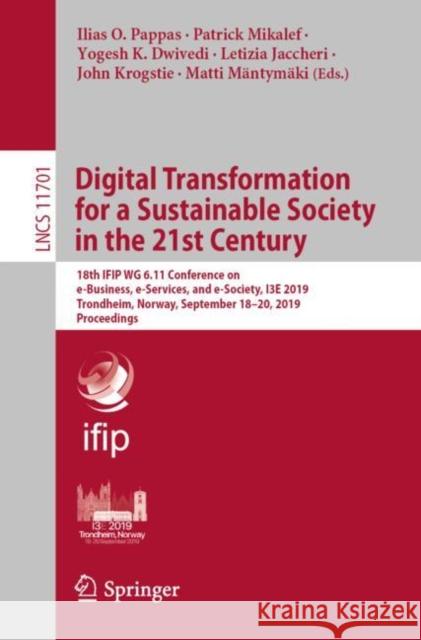Digital Transformation for a Sustainable Society in the 21st Century: 18th Ifip Wg 6.11 Conference on E-Business, E-Services, and E-Society, I3e 2019, » książka
topmenu
Digital Transformation for a Sustainable Society in the 21st Century: 18th Ifip Wg 6.11 Conference on E-Business, E-Services, and E-Society, I3e 2019,
ISBN-13: 9783030293734 / Angielski / Miękka / 2019 / 811 str.
Digital Transformation for a Sustainable Society in the 21st Century: 18th Ifip Wg 6.11 Conference on E-Business, E-Services, and E-Society, I3e 2019,
ISBN-13: 9783030293734 / Angielski / Miękka / 2019 / 811 str.
cena 403,47
(netto: 384,26 VAT: 5%)
Najniższa cena z 30 dni: 385,52
(netto: 384,26 VAT: 5%)
Najniższa cena z 30 dni: 385,52
Termin realizacji zamówienia:
ok. 22 dni roboczych.
ok. 22 dni roboczych.
Darmowa dostawa!
Kategorie:
Kategorie BISAC:
Wydawca:
Springer
Język:
Angielski
ISBN-13:
9783030293734
Rok wydania:
2019
Wydanie:
2019
Ilość stron:
811
Waga:
1.14 kg
Wymiary:
23.39 x 15.6 x 4.22
Oprawa:
Miękka
Wolumenów:
01
Dodatkowe informacje:
Wydanie ilustrowane











